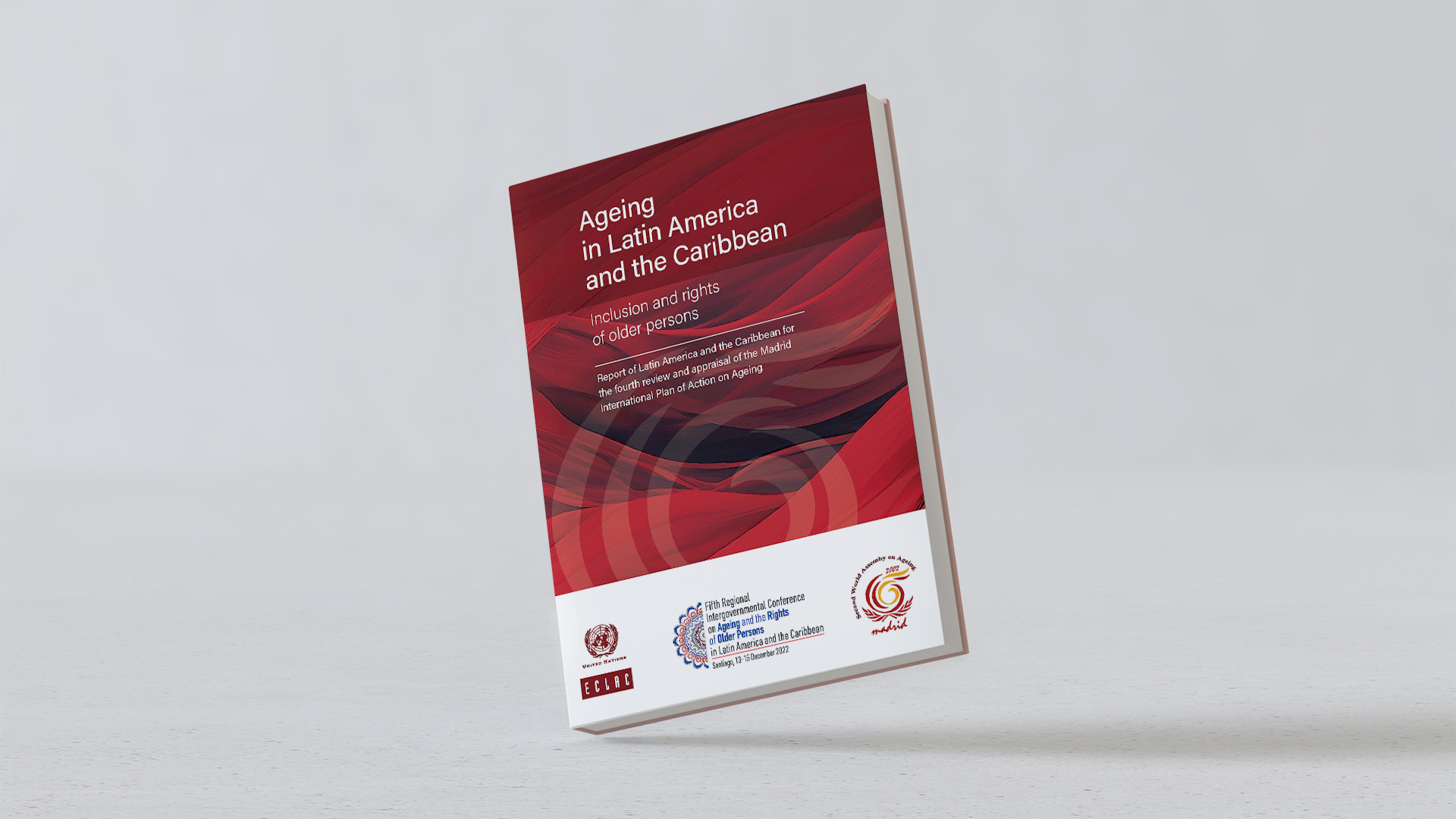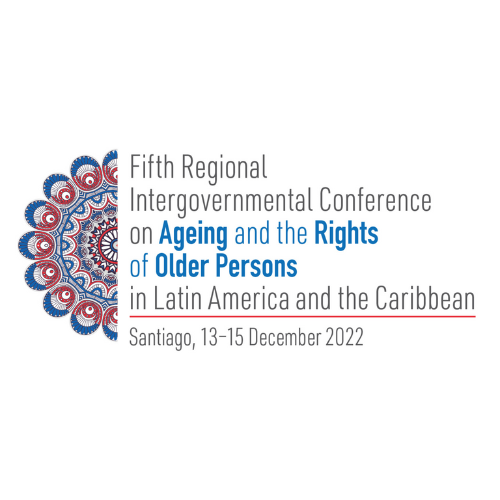ECLAC Examines Current Outlook for Ageing in the Region as well as Progress and Challenges for Older Persons’ Inclusion and the Exercise of Their Rights
Work area(s)
A new document was presented during the Fifth Regional Intergovernmental Conference on Ageing and the Rights of Older Persons in Latin America and the Caribbean.

In order to achieve fairer societies, policies, institutions and robust legal frameworks must guarantee ageing with dignity, ensuring that rights are fulfilled, with the highest possible quality of life for older persons, their families and communities, and strengthening intergenerational relations, a new report released today by the Economic Commission for Latin America and the Caribbean (ECLAC) maintains.
The document entitled Ageing in Latin America and the Caribbean: Inclusion and rights of older persons was presented to countries during the Fifth Regional Intergovernmental Conference on Ageing and the Rights of Older Persons in Latin America and the Caribbean, which is being held through Thursday, December 15 at ECLAC’s headquarters in Santiago, Chile.
The report presents the region’s progress and achievements in implementing the Madrid International Plan of Action on Ageing over the last five years (2017-2022), while also spotlighting the challenges that remain for fulfilling regional agreements on this issue.
The document provides an overview on ageing and demographic trends in the region. It confirms that population ageing is one of the main demographic phenomena affecting Latin America and the Caribbean and specifies that 88.6 million people aged 60 years and over are living in the region as of 2022, representing 13.4% of the total population, a proportion that will reach 16.5% by 2030. The rapid ageing process that the region is undergoing will lead to older persons accounting for 25.1% of the total population (193 million people) by 2050, meaning there will be 2.1 times more older persons that year than in 2022.
Furthermore, life expectancy for both sexes has increased from 48.6 years in 1950 to 75.1 years in 2019. Despite the 2.9 year setback in 2021 versus 2019 due to the impact of the COVID-19 pandemic, life expectancy is forecast to continue rising in the future and reach 77.2 years by 2030.
“Ageing has become a matter of the highest priority and requires urgent action in several areas to give greater visibility to the issue and address it from a rights-based, gender-based, intersectional and intercultural perspective. It also requires placing the protection of the rights of older persons at the center of public policy responses and incorporating the vision and commitments derived from international and regional instruments and agreements on the topic,” José Manuel Salazar-Xirinachs, ECLAC’s Executive Secretary, affirms in the document’s foreword.
The report adds that Latin America and the Caribbean went from being a young society to being a young adult society in 2021, and it is expected that it will become an ageing society by 2053, when the group of people 60 years and older will outstrip all other age groups in terms of volume.
“This has considerable implications for public policy and requires medium- and long-term planning in labor, health and social protection and other policies,” the report emphasizes.
The document stresses that the implementation of the Madrid International Plan of Action on Ageing has taken place in a global and regional context of profound social, economic, political, climatic and technological changes. In addition, in the case of Latin America and the Caribbean, it takes place in a scenario of profound inequality along various dimensions, high levels of poverty, and weak social protection and health-care systems. Furthermore, the region has experienced the devastating effects of the COVID-19 pandemic, which has further exposed the socioeconomic inequalities and disparities in access to health and social protection services that affect the most vulnerable population groups, such as older persons.
With regard to challenges relating to the social protection coverage of older persons, the document indicates that 25 countries in the region have non-contributory, old-age pensions. It adds that in 2020, in 13 Latin American countries, pensions averted an increase of 34.9 percentage points in poverty and 22.9 percentage points in extreme poverty. In the Caribbean, meanwhile, in seven countries, less than 50% of the population of legal retirement age has a contributory or non-contributory pension. In the case of Haiti, this coverage amounts to just 0.4%.
The document analyzes the promotion of health and well-being in old age, and it details the region’s progress and challenges in relation to health policies for older persons. It also examines fulfillment of the right of older persons to live in environments that enhance their capabilities and foster their participation and autonomy.
The report dedicates a chapter to older persons’ right to care and emphasizes that care is a central issue for life and development and cuts across all the priority directions of the Madrid International Plan of Action on Ageing.
Finally, it urges for including ageing on government agendas, strengthening national legal frameworks for the protection of older persons, universalizing older persons’ access to social protection, health services and care, and providing lifelong learning, closing the digital divide, and improving access to basic services.
The report also recommends overcoming age discrimination, especially in the labor market; strengthening mechanisms to collect sociodemographic information disaggregated by age, sex, ethnic-racial affiliation, morbidity and disability status; and expanding older persons’ participation in developing public policies.
Related event

Fifth Regional Intergovernmental Conference on Ageing and the Rights of Older Persons in Latin America and the Caribbean
La Comisión Económica para América Latina y el Caribe (CEPAL) acogerá del 13 al 15 de diciembre de 2022 la Quinta Conferencia Regional Intergubernamental sobre Envejecimiento y Derechos de las…
Type
Country(ies)
- Latin America and the Caribbean
